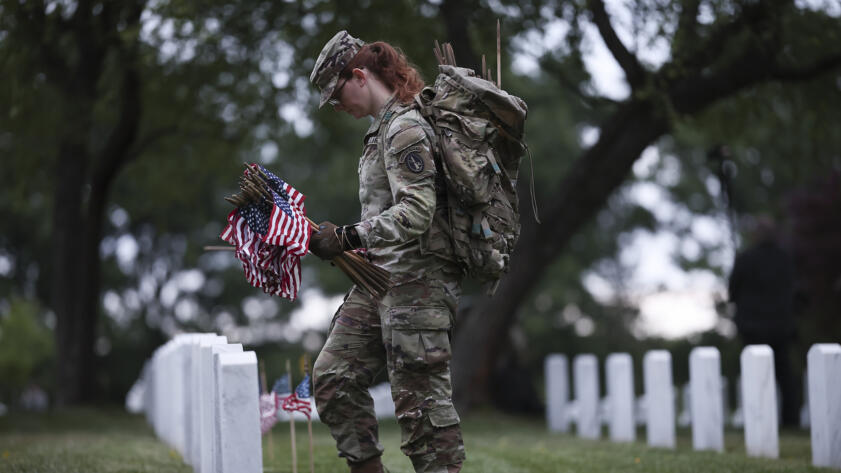The Department of Veterans Affairs would be forced to overhaul an artificial intelligence program that helps direct suicide prevention outreach under a bill introduced late last month by Sen. Jon Tester.
Tester, a Montana Democrat who chairs the Senate Veterans Affairs Committee, introduced the bill after an investigation by The Fuller Project and The Markup found the department’s algorithm prioritized White, male veterans. It also gave preference to veterans who are “divorced and male” and “widowed and male” but not to any group of female veterans.

News
V.A. Uses a Suicide Prevention Algorithm To Decide Who Gets Extra Help. It Favors White Men.
An AI program designed to prevent suicide among U.S. military veterans prioritizes White men and ignores survivors of sexual violence
Military sexual trauma and intimate partner violence, both linked to elevated suicide risk among female veterans, were not taken into account. Tester’s legislation would require those factors to be incorporated within 60 days of the bill becoming law.
The most recent government data show a 24 percent increase in the suicide rate among female veterans between 2020 and 2021 — about four times the increase among male veterans during that one-year period. It was also almost 10 times greater than the 2.6% increase among women who never served in the military.
“It is critically important that VA takes into account additional risk factors faced by women veterans,” Tester, the chairman of the Senate Veterans Affairs Committee, said in a statement. Tester, a Montana Democrat locked in a tight re-election fight that could determine control of the Senate, has touted his commitment to veterans over the course of his campaign.
The VA says it is working to update the algorithm to include risk factors that disproportionately impact women independently of the proposed legislation. Agency press secretary Terrence Hayes said in an email earlier this month that the agency is weighing including pregnancy, endometriosis, ovarian cysts, intimate partner violence, and military sexual trauma, among other factors.
“VA continuously works to improve our programs,” Hayes said. “As we update the model, it will be evaluated for performance and bias before it is deployed.”
In an email, VA spokesperson Adam Farina said the agency hoped to update the algorithm in early 2025.
VA officials have previously defended prioritizing White, male veterans for outreach. The suicide rate for female veterans may be rising faster, they’ve said, but the suicide rate for male veterans remains considerably higher. In an interview in May, Matthew Miller, the agency’s executive director for suicide prevention, said a history of military sexual assault or intimate partner violence were not among the 61 variables used in the algorithm because they were not among “the most powerful for us to be able to predict suicide risk.”
Veterans groups, who have pushed for the VA to update the algorithm, welcomed Tester’s legislation and said that the agency needs to move faster. “We have seen promises,” said Naomi Mathis, assistant legislative director of Disabled American Veterans, which has made improved care for female veterans a priority.
Mathis, a former Air Force staff sergeant who was deployed to Iraq, noted that in surveys, a third of female veterans tell the VA that while in uniform, they endured sexual activity against their will. “You’re not seeing them,” she said.
The issue of algorithmic bias has gained traction in recent years, with researchers finding many AI systems systematically favoring White men in their functions. Both President Joe Biden and his predecessor Donald Trump issued executive orders to promote transparency and accountability for AI products, a process that can be difficult given increased reliance by researchers on systems that ostensibly teach themselves and create their own processes that may not be explainable. The VA has identified more than 100 programs covered by those presidential decrees.
Correction: Oct. 29, 2024
A previous version of a photo caption misstated where U.S. Sen John Tester holds office. Tester represents Montana.





